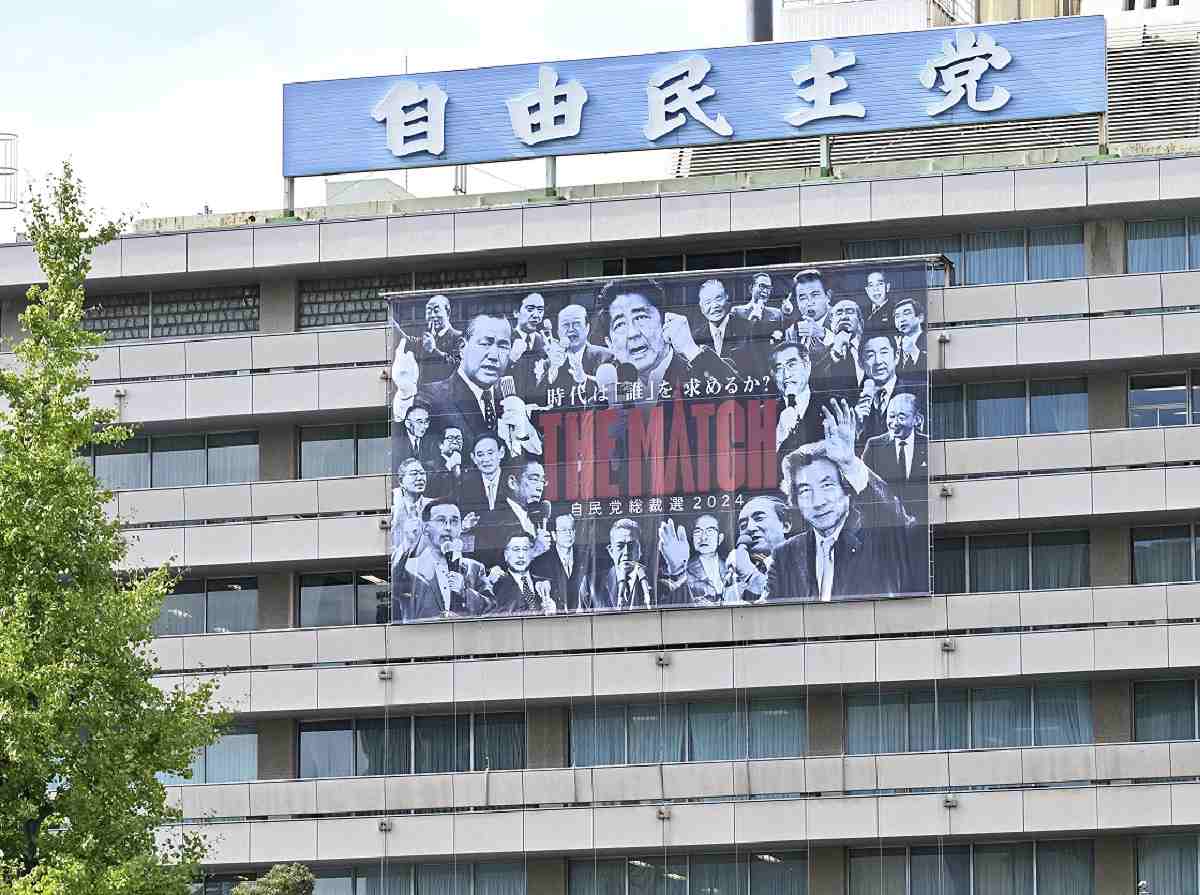LDP Candidates Outline Signature Policies as Election Campaign Kicks Off; Using Signature Policies to Stand Out

The LDP headquarters in Tokyo
20:00 JST, September 13, 2024
The record-high nine candidates running in the ruling Liberal Democratic Party’s presidential election have outlined their signature policies as they try to stand out in the heavily congested field.
During 10-minute speeches given after submitting their candidate applications on Thursday, the contenders detailed their reasons for entering the race, personal strengths and key policies they intend to introduce should they be chosen as party leader and successor as prime minister to current party President Fumio Kishida.
Economic security minister Sanae Takaichi was the first candidate to lay out their plans.
“Before anything else, the LDP must be reborn as a party that all the people can trust,” Takaichi said. She devoted the bulk of her speech to the issue of political reform and expressed her determination to tackle such reforms head-on.
A series of scandals involving party factions not documenting income from fundraising parties remains an albatross around the party’s neck. Chief Cabinet Secretary Yoshimasa Hayashi, former Environment Minister Shinjiro Koizumi, Foreign Minister Yoko Kamikawa and former Chief Cabinet Secretary Katsunobu Kato were among the candidates who pledged to undertake a bold shake-up of the LDP to restore public “trust” in and “affinity” for the party.
LDP Secretary General Toshimitsu Motegi also declared he would “build a completely new LDP” by taking steps such as abolishing the use of policy activity expenses which political parties provide to their Diet members.
Experience touted
Candidates who have experience as a cabinet minister noticeably put forward policies that drew on their track record.
Former LDP Secretary General Shigeru Ishiba, who has served as defense minister and head of the former Defense Agency, spent about 80% of his allotted time talking about national security matters. “I’ve held posts in the security field,” Ishiba said. “We must protect Japan’s independence and peace.”
Hayashi trumpeted his extensive history with cabinet posts, which includes stints as foreign minister and agriculture, forestry and fisheries minister. “I want to make the most of my experiences and accomplishments to serve Japan,” Hayashi said.
Kamikawa emphasized that the resolute judgment she has displayed would be a key asset. “I have made some extremely difficult decisions that none besides me could have,” Kamikawa said. She was apparently referring to her time as justice minister when she signed execution orders for 13 former senior members of the Aum Shinrikyo cult in 2018.
Motegi, an economic and fiscal policy specialist, stated he would increase tax revenue by growing the economy, thereby ensuring there would be no tax increases. Digital minister Taro Kono, who is also serving as minister of administrative reform, pivoted to deregulation and touted his plan for the wider implementation of autonomous driving and other technologies. “I’ll unleash the vitality of the private sector,” Kono said.
Kato said he had achieved a degree of success during his time as minister in the cabinets of former Prime Ministers Shinzo Abe, Yoshihide Suga and Kishida, but also acknowledged that people’s livelihoods had not improved as much as hoped. “I’ll give everything I’ve got in efforts to double people’s incomes,” Kato said.
Related Tags
Top Articles in Politics
-

Japan PM Takaichi’s Cabinet Resigns en Masse
-

Sanae Takaichi Elected 105th Prime Minister of Japan; Keeps All Cabinet Appointees from Previous Term
-

Japan’s Govt to Submit Road Map for Growth Strategy in March, PM Takaichi to Announce in Upcoming Policy Speech
-

LDP Wins Historic Landslide Victory
-

LDP Wins Landslide Victory, Secures Single-party Majority; Ruling Coalition with JIP Poised to Secure Over 300 seats (UPDATE 1)
JN ACCESS RANKING
-

Japan PM Takaichi’s Cabinet Resigns en Masse
-

Japan Institute to Use Domestic Commercial Optical Lattice Clock to Set Japan Standard Time
-

Israeli Ambassador to Japan Speaks about Japan’s Role in the Reconstruction of Gaza
-

Man Infected with Measles Reportedly Dined at Restaurant in Tokyo Station
-

Man Infected with Measles May Have Come in Contact with Many People in Tokyo, Went to Store, Restaurant Around When Symptoms Emerged




















